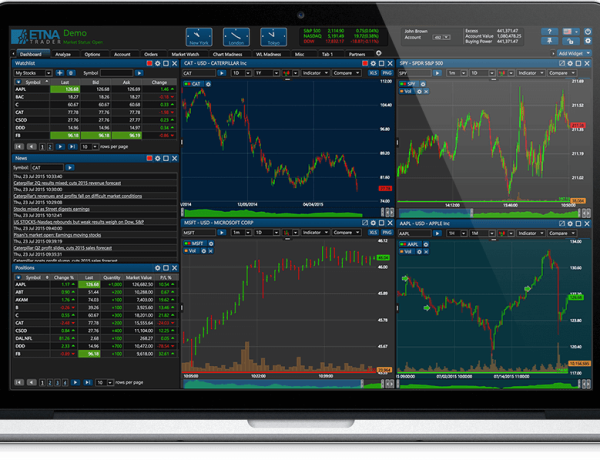Global Mobile Gambling Regulations: Navigating a Patchwork of Laws
From licensing requirements to responsible gambling measures, we’ll explore the key principles and guidelines that international jurisdictions enforce to ensure a safe and fair gaming experience.
Table of Contents
Importance of Understanding Global Regulatory Frameworks
In the fast-paced world of mobile gambling, where technology is constantly evolving, it’s crucial to have a solid understanding of the global regulatory frameworks that shape the industry. These frameworks not only ensure a safe and fair gaming experience for players but also provide guidelines for mobile operators to adhere to.
Moreover, understanding global regulatory frameworks helps us identify reputable and trustworthy mobile gambling platforms like parimatch.com.gh that prioritize player protection. It allows us to distinguish between licensed operators who comply with the regulations and fly-by-night casinos that may put our personal and financial information at risk.
Regulatory Frameworks in Europe
Europe is a diverse continent with varying approaches to mobile gambling regulation. Some countries have embraced the industry with open arms, while others have implemented strict regulations to protect their citizens from the potential harms of gambling.
In the United Kingdom, mobile gambling is highly regulated by the UKGC. To operate legally in the UK, operators must obtain a license from the UKGC and comply with their stringent requirements. These requirements include responsible measures, anti-money laundering protocols, and technical standards to ensure fairness and transparency.
On the other hand, countries like Germany have implemented a more restrictive regulatory framework. The Interstate Treaty on Gambling (ISTG) prohibits online gambling, including mobile gambling, except for sports betting. However, some states have implemented their laws to allow gambling, creating a complex and fragmented regulatory landscape.
In Scandinavia, countries like Sweden and Denmark have established their regulatory frameworks to govern mobile gambling. Sweden introduced a licensing system in 2019, requiring operators to obtain a license from the Swedish Gambling Authority (SGA) to offer their services legally. Denmark, on the other hand, has had a regulated market since 2012, with strict licensing requirements and responsible measures in place.
Regulatory Frameworks in North America
In North America, the regulatory landscape for mobile gaming varies significantly between countries and states. While some regions have embraced digital gambling, others have implemented strict regulations or even outright bans.
In the United States, virtual gambling is regulated at the state level. Each state has the authority to legalize and regulate online gaming within its borders. Currently, several states have legalized gambling, including New Jersey, Pennsylvania, and Nevada. However, the majority of states still prohibit or have yet to address the issue of digital gambling, creating a patchwork of regulations across the country.
Canada, on the other hand, has taken a more permissive approach to gambling. While the federal government has left the regulation of online gambling to the provinces, most provinces have embraced the industry and offer gaming options, including mobile gambling. The Kahnawake Gaming Commission, located in the Mohawk Territory of Kahnawake, Quebec, is one of the most prominent regulatory bodies in Canada.
Regulatory Frameworks in Asia-Pacific
The Asia-Pacific region is home to a diverse range of regulatory frameworks for mobile gambling. While some countries have embraced virtual gambling and established robust regulatory systems, others have implemented strict bans or are in the process of developing regulatory frameworks.
In Australia, digital gaming is regulated at both the federal and state/territory level. The Interactive Gambling Act 2001 prohibits the provision of gaming services to Australian residents, but it does not explicitly prohibit individuals from accessing offshore websites. However, several states and territories have regulations in place to govern gambling, including the mobile sector.
In contrast, countries like China and South Korea have implemented strict bans on online gambling, including mobile gambling. In China, all forms of digital gaming are illegal, and the government actively blocks access to offshore websites. Similarly, in South Korea, virtual gambling is illegal for Korean residents, although foreigners are allowed to gamble in designated casinos.
On the other hand, countries like the Philippines and Macau have embraced online gaming and established regulatory frameworks to govern the industry. The Philippine Amusement and Gaming Corporation (PAGCOR) is the main regulatory body in the Philippines, while Macau is known as the “Las Vegas of Asia” and is a major hub for land-based and digital gambling.
Regulatory Frameworks in Latin America
Latin America is a region with a rapidly growing mobile gambling market. While the regulatory frameworks in this region are still developing, several countries have taken steps to regulate and legalize online gambling.
In Argentina, virtual gambling is regulated at the provincial level. Each province has the authority to regulate gaming within its borders, resulting in a fragmented regulatory landscape. Some provinces have embraced the virtual sector, while others have imposed strict regulations or bans.
In Colombia, digital gaming is legal and regulated by the Colombian Gaming Authority (Coljuegos). The regulatory framework in Colombia focuses on player protection, responsible measures, and anti-money laundering protocols to ensure a safe and transparent gaming environment.
Brazil is also in the process of developing a regulatory framework for online gambling. While digital gambling is currently illegal in Brazil, there is a growing push to legalize and regulate the industry to generate tax revenue and protect players.
Best Practices for Mobile Gambling Operators
To navigate the complex world of mobile gambling regulation, operators should adopt best practices to ensure compliance and player protection. These best practices include:
- Obtaining the necessary licenses: Operators should obtain licenses from reputable regulatory bodies to ensure compliance with the regulations. This not only demonstrates their commitment to player protection but also provides players with the assurance that they are playing on a trusted platform.
- Implementing responsible measures: Operators should implement strict responsible measures to protect players from the potential harms of gambling. This includes setting deposit limits, providing self-exclusion options, and offering resources for problem gambling support.
- Ensuring secure and fair gaming: Operators should prioritize the security of players’ personal and financial information by implementing robust encryption and data protection measures. They should also ensure that their games are fair and transparent by using certified random number generators and regularly auditing their platforms.
- Building strong customer support: Operators should provide responsive and reliable customer support to address player concerns and inquiries promptly. This helps build trust and loyalty among players, ensuring a positive gaming experience.
- Staying up to date with regulations: Operators should stay informed about the latest regulatory developments and adapt their practices accordingly. This includes monitoring changes in licensing requirements, responsible gambling guidelines, and anti-money laundering regulations.
By adopting these best practices, operators can navigate the complex world of mobile gambling regulation and provide a safe and enjoyable gaming experience for players.
Conclusion
Understanding the global regulatory frameworks that govern the world of mobile gambling is crucial for players and operators alike. By familiarizing ourselves with the diverse approaches taken by different jurisdictions, we can navigate the complex regulatory landscape and make informed decisions.




No Comments